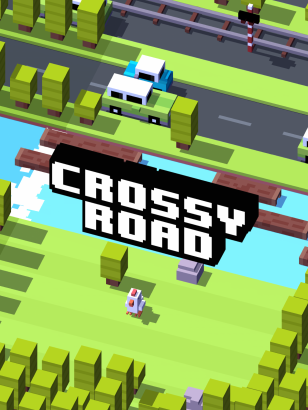Have we lost the ability to rest?

What do Netflix, 24-hour rolling news and the mobile phone game Crossy Road all have in common? Answer: they're all things that occupy my time when I'm 'resting' – and the phenomenal popularity of all three suggests I'm not alone. If I've ever got a spare evening, I'm almost certain to entertain myself with a combination of the above; punctuating news updates from stories I've already heard and old episodes of a TV show I don't really like, with quick bursts of a game so simple and pointless it makes Candy Crush look highbrow.
This is, at best, a junk-food version of rest. When we fill our evenings with these kinds of easy, time-passing pursuits, we can end up feeling a little like a kid who just ordered and ate 'the works' at McDonalds. Everything felt enjoyable enough at the time, but now we can't help feeling a bit bloated, and yet still in need of nourishment. While these things might hold a certain allure, I think we both need to exercise self-control in our consumption of them, and recognise that they're not really 'rest' in the biblical sense. It might be fun or useful in small doses, but repetitive on-demand media doesn't bring the kind of battery-recharging rest that God knows we need.
So what does good rest look like in practice? Allow me to come over all Oprah for a moment and suggest, as others have, that true rest is the pursuit of that which feeds your soul. For an extrovert like me that certainly doesn't look like quiet time on my own – it means time in a coffee shop with a notebook, surrounded by people. For another person it'll be a long walk in the countryside; for another a double-bill at the cinema; for still another a meal with friends. There's no one-size-fits-all formula for rest, but there are some guiding principles:
1. Does this activity bring me joy?
I'm not talking about the 'yay, I've got 200 points' flavour of joy here; I'm suggesting deep-seated contentment. The trouble with junk-food rest like Crossy Road (or before it Candy Crush, Flappy Bird and a thousand other time-wasters) is that gives us an illusion of joy, but really only rewards us with sensory pleasure – the shortest-lived kind of happiness.
2. Does it enable me to 'exhale'?
True rest enables recovery – of mind, body and spirit. When Jesus' life got most busy, it was then that the Bible tells us he 'often withdrew to lonely places and prayed' (Luke 5 v 16) – it was how he recharged his batteries. It doesn't have to involve solitary prayer, but the principle of taking time out from the busyness of work to recharge is a vital one.
3. Does it bring me closer to God?
When we're doing the things that feed our souls, we're inevitably becoming more like the people God created us to be. I'd argue that's why King David was most profound when he was songwriting. If we're wired to love a walk in the park, we're most likely to feel closer to God there; same principle applies for those who love live music, or cooking, or going to the pub. We tend to box God's involvement in our rest into Sunday services (which are not very relaxing for most of us) – in fact he's present whenever we truly rest.
The Christian, biblical, order-of-the-whole-universe principle behind all this of course is Sabbath – God created a rhythm of six and one, not for his benefit but for ours. Sometimes we can turn that into a religious process and miss the gift of time and space that it offers; at other times we can fool ourselves into thinking we've rested when we haven't. I'm discovering that this question – 'what feeds my soul?' – is the key to practicing the Sabbath in a way that produces the effects God intended for us. The answer to that question rarely involves walking a digital chicken across a digital road, or discovering a little-known 1990s action movie on Netflix. Those things might be fun in small doses, but they don't truly help me to rest, grow or ultimately avoid burnout.
Martin Saunders is a Contributing Editor for Christian Today and an author, screenwriter and the Deputy CEO of Youthscape. You can follow him on Twitter: @martinsaunders











